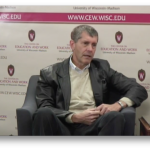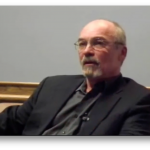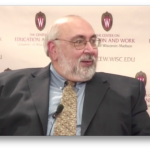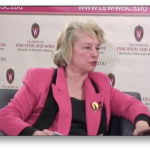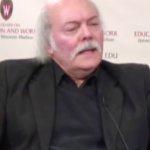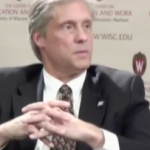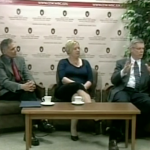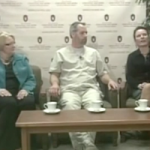Afternoon Tea Seminar Series
Afternoon Tea seminars were a series of conversations on career and workforce development in which V.Scott Solberg, Ph.D, who is currently a professor in counseling psychology at Boston University, conducted casual interviews with distinguished researchers and faculty in the field of vocational psychology. Afternoon Tea seminars were organized by the Center on Education and Work at University of Wisconsin-Madison.
Trian Tracy is a distinguished professor in counseling psychology at Arizona State University. He talked about a wide range of methods of career interest assessments.
Steven Brown, Ph.D. is a well-known faculty at Loyola University Chicago and a co-author of Social Cognitive Career Theory (SCCT). His talk focused on career decision-making difficulties as one of the major issues in career interventions and its solutions.
Mark Savickas, a professor at Northeastern Ohio Universities College of Medicine, is the author of Career Construction Theory and demonstrates a narrative method for helping clients in career counseling.
Ellen Henson is a senior employment service specialist in International labor Organization in Switzerland. She talked about global challenges especially career development needs of low- and middle-income countries.
John Vardallas is a founder and CEO of the American Bloomer sharing his perspectives about “All Things Bloomer.”
Dennis Winter is an expert and economic analyst modeling and forecasting and a vice-president and research of North Star Economics.
The conversation focused on learning what makes competitive and employable in today’s changing economy.
Graduate students who returned to college as an adult shared their experiences and resources they used to help them become successful and navigate challenges of going back to school.
MyCAP Workshops
MyCAP Workshops 2/15.2024
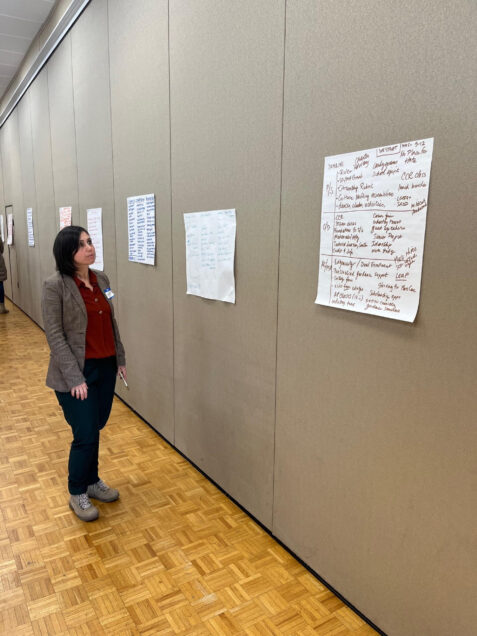
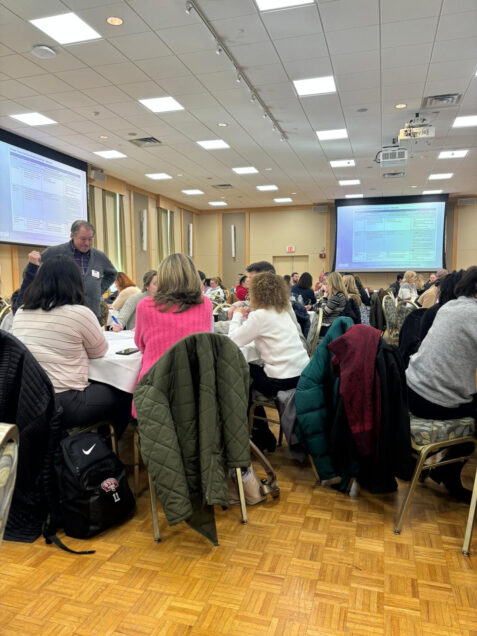
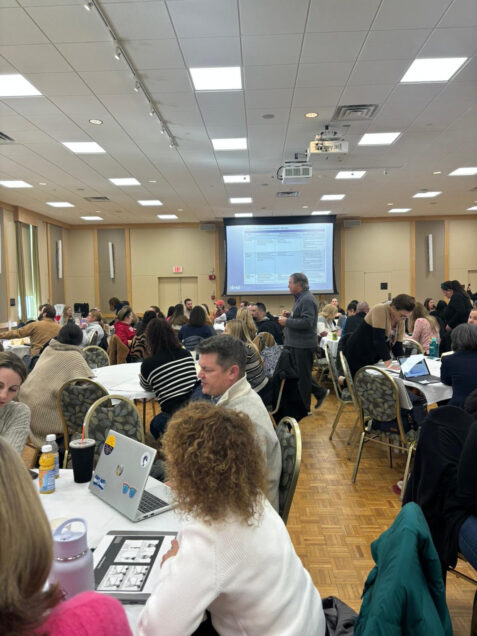
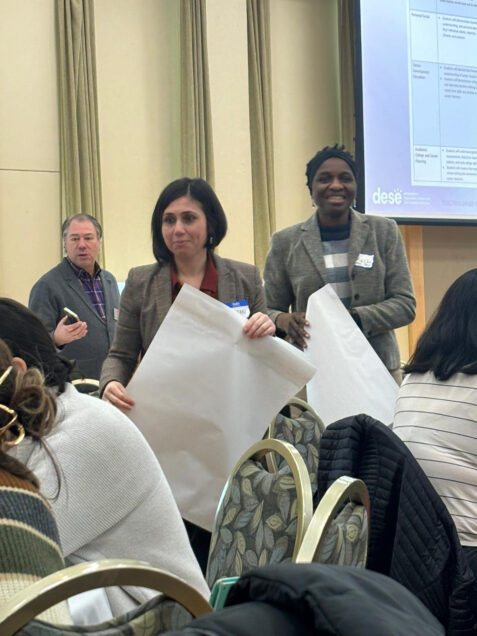
Meet Paola Diplan
Coming full circle, from being a student in Sociedad to becoming a part of the Sociedad staff, meet Paola Diplan, a STEAM coordinator at Sociedad Latina
By Amisha Kumar
Paola was born and raised in the Dominican Republic and moved to the United States in 2016. Growing up, she prioritized academics and her education. Although it was never initially a career goal for Paola, working in education is something she cherishes today because of her connection with Sociedad Latina.
"Growing up, I always tried to be this 'good student'...behaving at school and doing my homework, but I never thought about teaching or becoming a teacher, that [was] not in my future goal," said Paola.
Paola herself used to be a "Sociedad youth." She described her experience of being a part of the organization as a staff member and being a part of it when she was younger.
"When I started as a youth, I was like very shy. I didn't like to talk in front of others," said Paola.
She said a lot of this "shyness" was derived from her lack of confidence in English, as it is her second language. However, Sociedad helped her work on this by providing her with resources and the tools to advance herself.
"In summer, in the morning, I used to go to a school to learn English and do cool projects. In the afternoon...I was able to make some money by working at the elementary school," said Paola.
Her own positive experience with the organization is what made her want to take the opportunity to become a coordinator and work in education, even though it didn't align with her future goals.
"I love their [Sociedad Latina's] passion to help Latinos to succeed in life, which is why I took the opportunity to work with them," said Paola.
As a coordinator, her responsibilities include facilitating lessons with the STEAM team for the middle school youth and providing curriculum to support the development of different STEAM (Science, Technology, Engineering, Arts, and Mathematics) skills. She also helps middle schoolers transition into high school. She finds her role at Sociedad fulfilling because she can relate to the experiences of and see herself in the students she works with.
"Some families are comfortable with telling me about personal issues, and I feel like that is great to have that relationship with parents and youth," said Paola.
To her, the most rewarding part of her job is the relationships she builds with the youth and their families. Paola continues to work with Sociedad Latina because she believes the organization truly helps create the next generation of leaders in her community [the Latin@ community.]
Paola believes a key factor that helps her build such strong relationships with the students is that she can empathize with them because of her own experiences.
"A lot of my students are Latino, so, you know, it's like super easy for me to relate with them," she said.
Talking about her own experiences and issues when she was their age with them is her way of supporting and comforting students.
Paola is a big advocate for Sociedad Latina's work because of how it helped her when she was younger. The organization's clear goals and passion for helping Latin@ youth drew Paola into working in the field of education despite it not being her original plan.
"Now, as a coordinator, I'm able to see other students going through that amazing experience, and that really makes me happy," said Paola.
Meet Veronica Reeder
She is balancing college classes while being a STEAM coordinator at Sociedad Latina; meet Veronica Reeder
By Amisha Kumar
Veronica has worked in education for over eight years at multiple non-profit organizations like the YMCA and Outward Bound before joining Sociedad Latina. Her own experience as a student led to her working in the field of education today.
"I was a very different child than I am now. I personally did not like school, did not find the experience enjoyable at all," said Veronica.
She mentioned that she struggled to make it through school because she didn't understand the system or know how to access and use the resources required to succeed. This is one of the reasons she is training to be an educator.
"I want to kinda help the students who are like me, you know," she said.
She works at Sociedad because she believes empowering Latin@ youth and providing them with the tools to succeed in the future is crucial for the community and everyone's success.
In addition to her role at Sociedad Latina, Veronica is a college student. Originally she was skeptical about attending college and struggled to understand the value, which she attributes to being one of the first people in her family to attend college Veronica shared that she thankfully had great mentors who encouraged her to go to college, where she is now studying Social Work.
Balancing being a coordinator with her college workload is challenging, but there is a symbiotic relationship between the two.
"I think working with Sociodead has helped motivate me to do better in school and to continue my work in school because I've gotten to see the direct impact that I can have on others," said Veronica.
There are a lot of things her work at the organization teaches her; she mentioned organizational skills being one of the most important things she learned.
"Something I've learned from our supervisor Angelica is that organization is key, in non-profit and organizations in general," she said.
Organization not just with work at Sociedad but also with the youth. According to Veronica, consistency and organization are two of the most important things for success with students.
Developing meaningful relationships with students also plays a large role in being a STEAM coordinator, as it allows for forming a foundation of trust with the youth.
Despite being virtual this year, Veronica had some very authentic conversations, which built meaningful relationships.
"I remember the first time this youth joined us virtually, and they asked if they could like meet with me in a breakout room and talk to me… While it is like a small example, it's impactful because the youth was able to open up to me about some issues at home, and it was really wonderful," said Veronica.
This is undoubtedly Veronica's favorite part of her job.
"I love the relationships I get to build with the youth, especially when they enjoy the activities and see like that light go on in their eyes when they're like, ‘this is cool,’ " she said.
Veronica's way of building trust with the youth relies mainly on listening. She believes that listening and understanding different situations the youth face is the greatest method to offer support and connect with students because it is not possible to have shared every experience.
Veronica is equally passionate about individual students as she is about studying and training as an educator.
"It's the little moments of trust that really make the job amazing," said Veronica.
Global Careers Month
November 7 - December 14, 2022
Global Careers Month is an initiative of the Inter-Agency Group on Career Guidance which includes the International Labour Organisation, UNESCO, the World Bank, OECD, the European Commission, the European Training Foundation, and CEDEFOP.
Opening Remarks by Dr. V. Scott Solberg
More resources and Podcasts on research, policy, and practice can be found on the Coalition for Career Development Center website.
Building Equity into the Talent Pipeline: Innovative Strategies to Support Career and Workforce Readiness for Individuals with Disabilities
Policy Forum
Join us for a special discussion with Honorable Taryn Mackenzie Williams, Assistant Secretary of Labor for Disability Employment Policy. Hon. Williams will share federal program efforts to support workforce transitions among individuals with disabilities. Dr. Laura Owens, president of TransCen and Lori Cooney, Program Director for Inclusive Education and Curriculum Design at UMass Boston will describe interventions for individuals with disabilities from two ends of the talent pipeline – design strategies for integrated employment for young adults and a technology platform to support career awareness among elementary grade students. Amanda Winters from the National Governors Association will comment on state interest for adopting innovative employment strategies and Dr. Kimberly Howard will comment the importance of career development at the elementary school level.
Time: Nov 3, 2022 02:00 PM in Eastern Time (US and Canada)
An optional additional 30 minutes from 3:00-3:30 is allocated for follow up discussion.
This Policy Forum is part of a series conducted by the Coalition for Career Development Center in collaboration with Wheelock College of Education and Human Development’s Center for Future Readiness.
To attend the event, please register here.
Special Guest
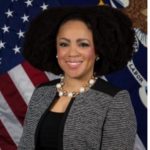
Honorable Taryn Mackenzie Williams is Assistant Secretary of Labor for Disability Employment Policy. In this position, she advises the Secretary of Labor on how the Department’s policies and programs impact the employment of people with disabilities and leads the Office of Disability Employment Policy (ODEP), which works with employers and all levels of government to promote evidence-based policy that improves employment opportunities and outcomes for people with disabilities.
Previously, Hon. Williams was the managing director for the Poverty to Prosperity Program at American Progress, which works on progressive policies focused on a broad range of anti-poverty strategies. Before joining American Progress, she worked at ODEP on a variety of issues related to education, workforce policy, Social Security, Medicaid and civil rights. In her role as director of youth policy, Williams led agency efforts to coordinate education and employment policy in support of improved labor force outcomes for disabled youth. From 2014 through 2016, Hon. Williams served as ODEP’s chief of staff. She also undertook detail assignments as associate director for public engagement and liaison to the disability community at the White House from 2014 through 2015 and as a policy adviser on the U.S. Senate Committee on Health, Education, Labor, and Pensions from 2012 through 2013.
Featured Panelists
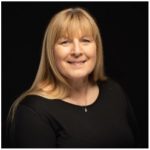
Laura Owens is President of TransCen and has over 30 years of experience as a national leader in the disability employment field. Dr. Owens is also Professor at the University of Wisconsin-Milwaukee in the Exceptional Education Department where she teaches courses focusing on high school inclusion and transition from school to work. She is also the founder and President of Creative Employment Opportunities, Inc. (CEO), in Milwaukee. Dr. Owens will be share recent TransCen efforts centered around her passion for designing integrated employment opportunities for citizens with disabilities. She is an internationally known speaker having presented to businesses, organizations, schools, and at conferences in Israel, Ireland, Croatia, Canada, the Czech Republic, Chile, and Portugal.
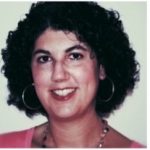
Lori Cooney is a Program Director, Inclusive Education & Curriculum Design, at the Institute for Community Inclusion (ICI) at UMass Boston. She coordinates a Federal Office of Special Education Programs (OSEP) grant for Future Quest Island, a fully accessible college and career readiness gaming adventure for elementary and middle school students. Lori has over 25 years of extensive experience in designing and delivering professional development on inclusive design, universal design for learning (UDL), accessibility, curriculum development, course design, instructional technology, college and career readiness, portfolios, personalized learning plans, STEAM, game-based accessibility, ‘Possible Selves’ framework, and assessment strategies.
Lori works across multiple projects on the Education & Transition Team as a technical training advisor on inclusive education and curriculum design. She has delivered professional development to universities, nonprofits, and companies on inclusive design strategies throughout the United States, Japan, Uruguay, Canada, China, Europe, and the United Kingdom. Additionally, Ms. Cooney facilitates the Technology and UDL Affinity Group for Think College’s National Coordinating Center for Transition to Postsecondary Education Programs (TPSID).
Lori has received the esteemed MassCUE Pathfinder Award (2012), a Technology Humanist Award from Worcester Polytechnic Institute, and is recognized as a Christa McAuliffe Teacher by the Challenger Learning Center at Framingham State University.
Discussants
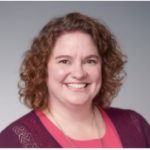
Amanda Winters serves is a program director in the National Governors Association where she serves as an adviser to state leaders on post-secondary and workforce policies with a special emphasis on equity and work-based learning. Ms. Winters is also a founding member of the Coalition for Career Development Center Board. She is also working on projects examining state longitudinal data systems, short term credentials, occupational licensure, state higher ed oversight and connecting education and work. She is working with colleagues and collaborative partners to expand the post-secondary portfolio of the NGA Center in response to the needs of states.
Cohosts
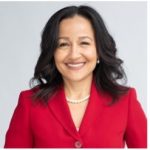
Eva Mitchell is Chief Program Officer for the Coalition for Career Development. Previously, Ms. Mitchell served as Chief of the Division of Accountability where she was responsible for Transformation Schools, the ESSER funding strategy, and the Office of Data and Accountability. Ms. Mitchell previously served as the Associate Commissioner for District and School Accountability at the Massachusetts Department of Elementary and Secondary Education, where she worked on policy development and implementation of the Act Relative to the Achievement Gap, the state Accountability and Assistance Framework, qualitative and quantitative district and school reviews, and state receivership. Prior to that, she was Senior Lead at the Governor’s Office of Educational Quality and Accountability.

Scott Solberg is a professor in the Counseling Psychology & Applied Human Development Department at BU Wheelock College of Education & Human Development, Co-Director for the BU Center for Future Readiness and Vice President for Research for the Coalition for Career Development Center. He works internationally and nationally on the design, implementation, and evaluation of effective career development programs and services, especially for high-need youth populations, including youth with disabilities. His most recent publications with the CCD Center include an inaugural report on the Condition of Career Readiness in the United States and a national framework for career and workforce readiness and social emotional learning in collaboration with CASEL and Civic.
To attend the event, please register here.
Dear High School Grads, Not Sure What to do Next Year? How About A Gap Year?
By Efe I. Shavers, Kimberly A. S. Howard, Priya C. Voetsch, Siyao Wang, & Sara Langtry
Dear High School Seniors:
We understand that you are finishing up a very challenging set of years in high school. Living and learning through COVID might have made you rethink your plans after high school or feel less confident in the path you were intending to take. Please know, many people are feeling similar uncertainty. For better or for worse, COVID encouraged many of us to re-evaluate how we are spending our time and to think deeply about what is really important to us. There are many post-high school educational pathways that people can take. Including a Gap Year.

So what is a gap year? It is an alternative to beginning college immediately following high school graduation. The goal of the gap year is to take time, either a semester or a year, to gain further knowledge, develop a new set of skills, and/or enrich your experience of the world. It can provide some valuable “distance” needed to determine what comes next for you, whether that is a decision about what type of higher education or career training you wish to pursue or what you want to study in college.

To be clear, we are not advocating against college or other post-secondary training opportunities. In fact, those who pursue some form of training post-high school increase their chances of finding stable, satisfying jobs and are less likely to experience unemployment in the future. They also benefit from higher lifetime earnings with significantly better job benefits.

We also know, though, that many people might want or need a break or some life experience before heading off to post-secondary training, studying, and careers. The important thing to keep in mind is to use your gap year intentionally - to become a more informed, well-rounded person, to clarify your work and life values, or to pursue experiences of which you have always dreamed. So here are some ideas for you to consider:
1. Find your passion: Use the year to clarify your future goals and determine how to get there. In what career fields are you interested? What qualifications do you need for these career interests? What motivates you to succeed and work hard?
2. Travel: Experience new places, new cultures, and different ways of viewing the world. Enrich yourself and increase your skills in interacting and understanding others. Expand your horizons. Check out if nearby colleges offer study abroad programs, as you may be able to travel while gaining college course credits.

3. Gain real life experiences: Internships or fellowships, either paid or unpaid, can help to clarify interests and see the connection between college majors and future occupations. Shadowing professionals in occupations that align with your personal interests, may be eye opening and enlightening. Maybe take some classes at a nearby community college!
4. Give yourself to others: Volunteer, support your community, make a difference in the lives of others. Using your time to help your community may help you to realize where your interests and passions lie.

5. Hone a hobby: Is there anything that you wanted to learn, but didn’t have the time to do? Now is your opportunity! Learn a language, an instrument, how to cook, etc. The options are endless.

Any of these ways to use a gap year are useful. Determine your purpose for taking a gap year and what you how to achieve. Create a plan and make it happen. And if what you are needing is a break, take one by doing something that deliberately supports your development as a person. End your gap year stronger and more centered than you were when you began. There is no specific timeline for achieving your goals and growing as a person. Forge your own path ahead and see what the world can offer.

And then when you are ready to pursue college, career training, employment, or whatever comes next, don’t be afraid to share what you learned or experienced during this year. Wishing you the best of luck!
Sincerely,
Boston University Center for Career Readiness

How Families and Community Members Can Support the MyCAP
How Families and Community Members Can Support the MyCAP
By Lauren Shoss & Amisha Kumar
Senior year, college applications, and guidance counselors automatically come to our minds when we hear career planning. Although these are vital parts of one’s path to their academic future, it is important to understand that students can prepare for career readiness right from middle school or even earlier, be involved in the process of identifying and mapping their career goals, and recognize the importance of the role of families and community members in supporting themselves.
What is the MyCAP [1]?
MyCAP stands for My Career and Academic Plan and is how the Individualized Learning Plan (ILP) is called in Massachusetts. It is a living document and student-focused academic planning tool designed to map students’ academic, career, and personal success. With help and consultation from an identified adult at school and further guidance from their parents/guardians, the students are in primary control of their plan. This format improves student engagement as it pushes students to identify their interests and set self-defined career goals that align with these interests.
For further information about MyCAP:
MyCAP Information for Students
Importance of the role of the family in a child’s career development
Research [2] suggests that parental involvement plays a significant role in children’s career development. According to the study commissioned by the US Department of Labor’s Office of Disability Employment Policy (ODEP), students who have parental involvement in their career planning and exploration are more productive at school in terms of engagement, flexibility/adaptability, and resilience in times of challenge or conflict.
Further benefits of familial involvement in the youth’s career planning highlighted in the research [3]:
- Career search confidence and advocacy
- Academic confidence and advocacy
- Connection with peers
- Management of academic stress
- Management of distress
- Academic motivation
- Interpersonal connection with teachers
How can families and caregivers support their children?
There are many ways in which families and caregivers can both, directly and indirectly, support students in self-exploration and discovery, as well as in career planning and exploration [3].
- Evaluate the skill development opportunities their youth is receiving. Youth should be given opportunities in the following domains [3]:
- The Job Search: CVs and Cover Letter writing, interview skills, sharing disability with prospective employers, and availability of external resources
- Development of community engagement and leadership skills: relationship building, taking initiatives, public speaking, and empathy
- Workplace skill development; collaboration, problem-solving, written communication, willingness to learn, etc.
- Exposure to workplaces to support students in developing goals relating to their interests and identifying needed accommodations, including field trips, internships, and paid work
- Financial literacy: financial goals, budgeting, management of personal finances
- Assist their youth in exploring various careers by [3] :
- Motivating the youth to seek employment,
- Organizing opportunities for the youth to visit workplaces and shadow/talk to individuals with whom the youth identifies,
- Learning the requirements for careers of interest,
- Encouraging youth to be open-minded and explore a variety of options, and
- Ensuring youth are supported in achieving their long-term career goals.
- Important things to keep in mind to support youth [4]:
- Consistent support is key, even as independence develops!
- Don’t be afraid to branch outwards. External support such as professionals, peers, and community resources can be beneficial. Assist schools in planning events that help increase youth’s access to information about careers.
- Learn about opportunities in your community that can provide youth with the chance to gain experience and develop skills. Schools may offer ILP activities.
- Youth with disabilities should develop a Summary of Performance with their IEP, including work experience and support recommendations.
- Integrate career exploration and skill development into day-to-day life!
- Considerations for families and caregivers of youth with disabilities
- Be mindful of how the disability may affect them throughout their careers
- Be aware of the resources available in your school, community, and beyond, such as those that can assist your youth in finding accommodations for work
- Be educated on your youth's legislative rights, and advocate when you see something wrong. For more information on this, click HERE!
- For Massachusetts-specific resources and information regarding how to best support your youth, click here!
Families and caregivers play an integral role in fostering their youth’s development and growth in self-exploration, skill development, and career management and planning. It is important that families be supportive and caring every step of the way and do their part to ensure their youth is being provided with adequate opportunities to promote their growth and learning [4].
SOURCES
[1] Massachusetts Department of Elementary and Secondary Education. “My Career and Academic Plan (MyCAP).” My Career and Academic Plan (MyCAP) - College, Career and Technical Education, https://www.doe.mass.edu/ccte/ccr/mycap/
[2] Solberg, V. S., & Gresham, S. (Forthcoming). Supporting transition readiness skills for students with disabilities: Identifying what quality learning experiences promote which self-determination indicators
[3] National Collaborative On Workforce and Disability For Youth. “Understanding the New Vision for Career Development: The Role of Family.” InfoBrief, no. 39, Mar. 2014, pp. 7–7.
[4] National Collaborative On Workforce and Disability For Youth. “The guideposts for success: A framework for families preparing youth for adulthood.” InfoBrief, no. 36, Sept. 2010.
Sociedad Latina STEAM PSA COVID-19 Vaccine Video
Youth at Sociedad Latina created a PSA video that talks about facts and myths of COVID-19. The video was created as a result of a series of STEM and career development lessons that are related to COVID-19. Visit our YouTube channel to watch the full video.
Developing STEM Career Identity Among Latinx Youth
Our Netsci for All project team presented at the American Psychological Association annual conference on July 16th, 2021. Visit our YouTube channel to watch the recording.
Network Science for All – 2021 Advisory Board Meeting
External Advisory Board Meeting for NSF ITEST: Network Science for All was held on June 9th, 2021. Visit our YouTube channel to watch the recording.
